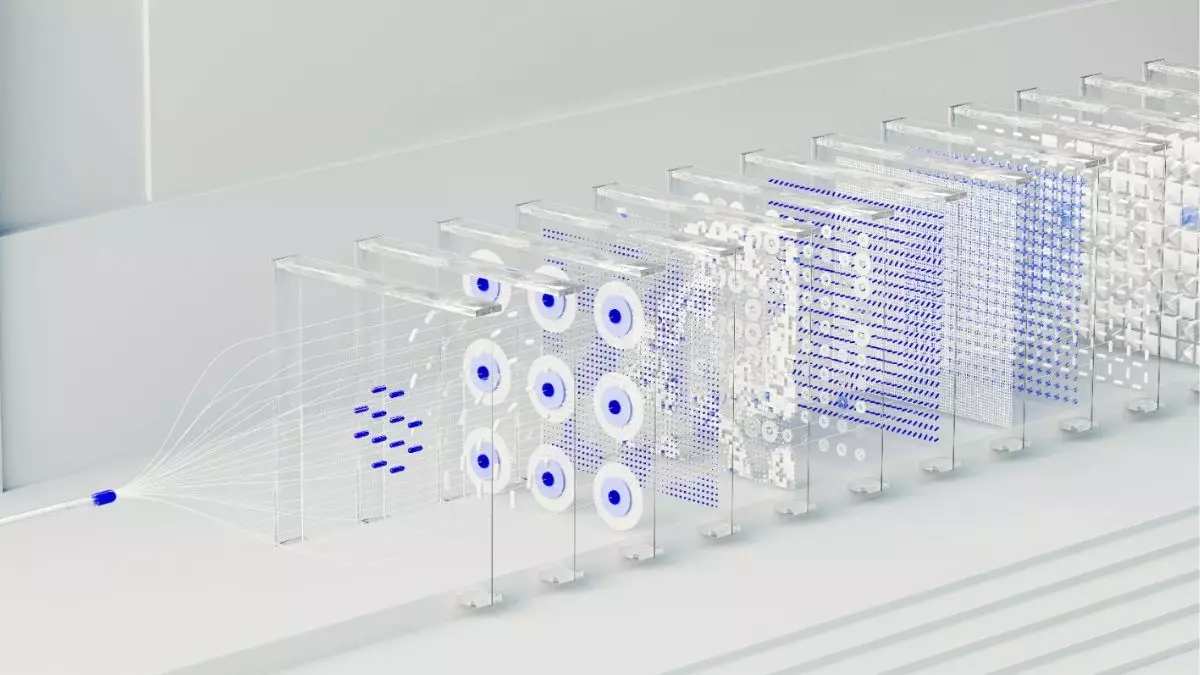In the realm of scientific innovation, the intersection of artificial intelligence (AI) and robotics has brought forth revolutionary possibilities. Tetsuwan Scientific, a dynamic startup based in San Francisco, stands at the forefront of this movement. Co-founded by Cristian Ponce and Théo Schäfer, the company emerged from its stealth phase in November 2023, following a successful seed funding round. This article explores Tetsuwan Scientific’s ambitious goal of creating AI-driven robots that replicate the analytical processes of a scientist, aiming to redefine the traditional landscape of scientific discovery.
At its core, Tetsuwan Scientific aims to develop intelligent software that can seamlessly integrate with lab robotics, effectively automating each aspect of the scientific method—from hypothesis formulation to experimental execution and data analysis. Historically, laboratory automation has favored high-throughput experimentation, which often sacrifices the diversity and complexity of scientific inquiry. This narrow focus has resulted in robotic systems functioning merely as assembly lines, lacking the intuitive capabilities necessary for actual scientific exploration.
The founders of Tetsuwan Scientific have pinpointed a critical shortcoming in existing laboratory robotics: the inability of machines to comprehend scientific intent. The result is a significant barrier to the automation of experimentation. Addressing this challenge requires not only advanced software but also adaptable robotic hardware. By leveraging generative AI models, Tetsuwan hopes to bridge this gap, allowing robots not just to execute pre-programmed commands, but to engage in scientific reasoning.
In a groundbreaking approach, Tetsuwan Scientific is harnessing the power of large language models (LLMs) to facilitate communication between humans and robots. CEO Cristian Ponce notes that this technology allows for the articulation of scientific intent without the need for intricate programming—eliminating the necessity for developers to write extensive lines of code. This innovation fosters an environment where the dialogue with AI can be more intuitive and direct, enhancing the machine’s capacity to respond contextually to complex scientific inquiries.
Furthermore, the company is integrating the Retrieval-Augmented Generation (RAG) framework into its AI understanding, which could significantly mitigate problems such as AI hallucination—an issue where AI generates misleading or nonsensical outputs. By establishing a more reliable interaction model, Tetsuwan Scientific aims to ensure that its robotic scientists can make informed decisions and adapt experimental protocols intelligently.
Tetsuwan Scientific is not merely creating machines; it is revolutionizing the role of robots in scientific inquiry. The company’s non-humanoid robots—characterized by their large glass-like structures—are explicitly designed to evaluate experimental results and make autonomous adjustments. These machines will be fortified with AI software and intricate sensors, enabling them to understand essential technical standards such as calibration and liquid classification.
Currently partnering with La Jolla Labs, Tetsuwan is working towards practical applications in RNA therapeutic drug development, an area rife with complexity that exemplifies the need for advanced robotics. In the collaboration, these robots are expected to augment human researchers significantly, taking on the more monotonous aspects of experimentation while allowing scientists to focus on conceptual and inventive elements of their work.
While Tetsuwan Scientific is still in the nascent stages of its journey, its vision of developing independent robotic AI scientists is both audacious and promising. The impact of such innovations could be transformative, not just for scientific research but for the broader societal perception of AI in roles typically reserved for humans. The capacity of robotics to automate entire scientific processes could lead to unprecedented advancements across numerous fields, pushing the boundaries of what is scientifically possible.
Tetsuwan Scientific embodies a bold stride into the future of research and innovation, seeking to integrate AI and robotics in a way that enhances rather than replaces human intellect. As it navigates the complexities of scientific automation, the next few years will be critical in determining the role these intelligent systems will play in reshaping our world. Through their groundbreaking efforts, Tetsuwan Scientific is setting the stage for a new era in scientific discovery—one where the synergy of man and machine creates not just efficiency but unparalleled breakthroughs.

Leave a Reply